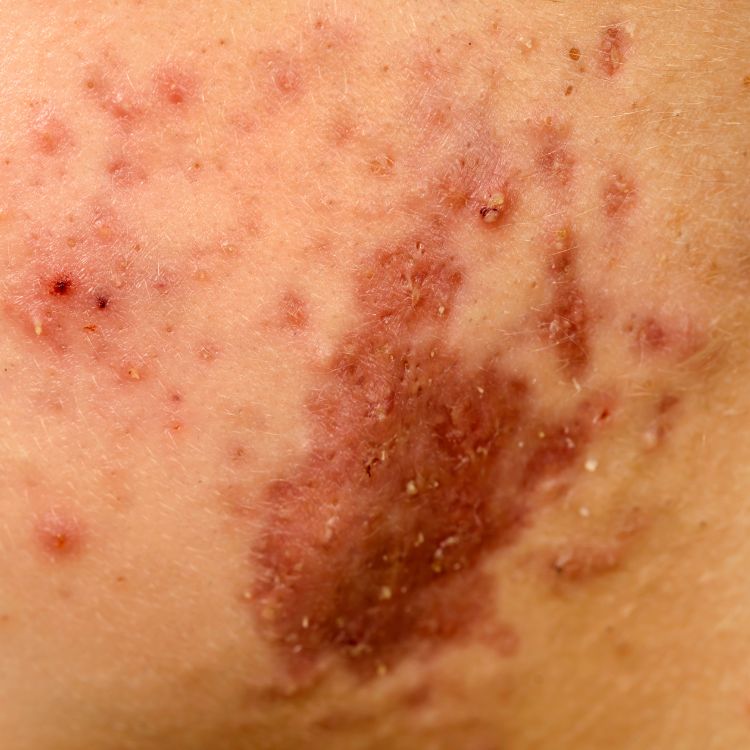Hidradenitis Suppurativa (HS) is a chronic skin condition that causes painful, inflamed lumps to form under the skin. These lumps, called abscesses, often develop in areas where skin rubs together, such as the armpits, groin, and buttocks. HS can be physically and emotionally draining, as the abscesses can be painful and require frequent medical attention. Note that Hidradenitis Suppurativa scars or impact can be physical, emotional, financial, or social. This article focuses on how to cope with the impact of HS.

Stress Associated with Hidradenitis Suppurativa Scars
The physical pain and discomfort associated with HS can be distressing and can lead to feelings of stress and anxiety. In addition to the physical symptoms, HS can also have a significant impact on your emotional well-being. The condition can be embarrassing and cause a person to feel self-conscious about their appearance.
This can lead to feelings of low self-esteem and social isolation. The persistent nature of the condition can also be frustrating and cause feelings of hopelessness and despair. These are some of the Hidradenitis Suppurativa scars or effects you will need to overcome.
The stress associated with HS can also negatively impact your physical health. For instance, stress has been linked to a number of adverse health outcomes, including an increased risk of heart disease, high blood pressure, and diabetes. It can also weaken the immune system and make you more susceptible to infections.
Managing the stress associated with HS is essential to coping with the condition. This can involve seeking support from loved ones, practicing self-care, learning about the condition, and seeking professional help if needed. By addressing the stress associated with HS, a person can improve their overall quality of life and find relief from this condition. Here are some strategies for coping with the Hidradenitis Suppurativa scars or the stress associated with HS.
1. Seek support from friends and loved ones: It can be helpful to have a supportive network of people who can listen and offer emotional support. Sharing your feelings and experiences with others who understand can provide a sense of comfort and help alleviate some of the stress associated with HS.
2. Connect with others who have HS: There are many online communities and support groups specifically for people with HS. These groups can be a great source of information, support, and encouragement.
3. Practice self-care: Taking care of your physical and emotional well-being is important for managing the stress of HS. This might include getting enough rest, exercising regularly, eating a healthy diet, and finding ways to relax and destress.
4. Seek professional help: If the stress of HS is becoming overwhelming, it may be helpful to seek the help of a mental health professional. A therapist or counselor can provide tools and strategies for managing stress and coping with the challenges of HS. Also, your healthcare provider can help.
5. Stay informed about treatment options: There are a variety of treatment options available for HS, including medications and surgery. Keeping up to date on the latest treatment options can help you feel more in control of your condition and reduce stress.
6. Practice relaxation techniques: Finding ways to relax and reduce stress can be helpful in managing the symptoms of HS. This might include activities like meditation, deep breathing, or yoga.
7. Find healthy outlets for stress: Engaging in activities that you enjoy and that help you relax can be a great way to cope with the stress of HS. This might include hobbies like painting, writing, or playing music.
Final Thoughts
In conclusion, coping with the stress of Hidradenitis Suppurativa can be challenging, but many strategies and resources are available to help. Taking care of your physical and emotional well-being and seeking support from friends, loved ones, and professionals when needed, is essential.
